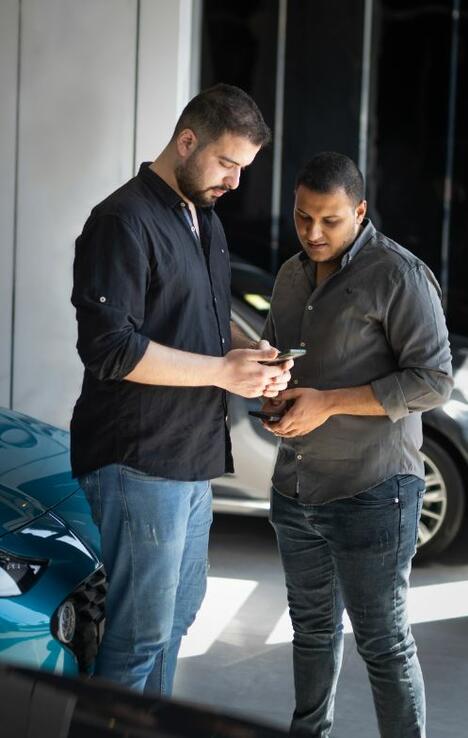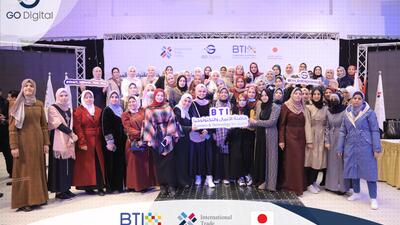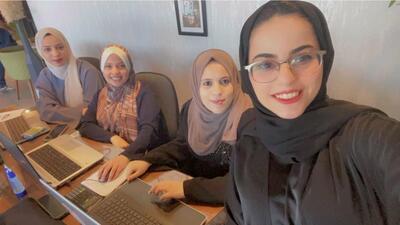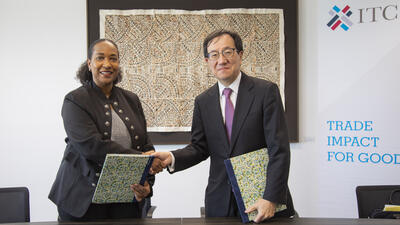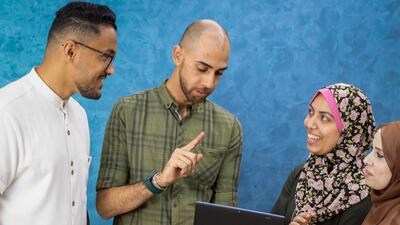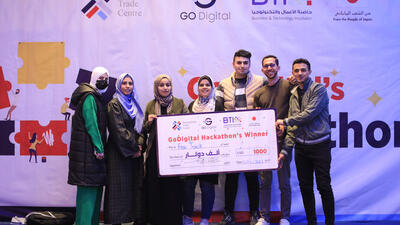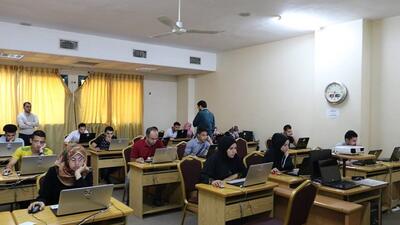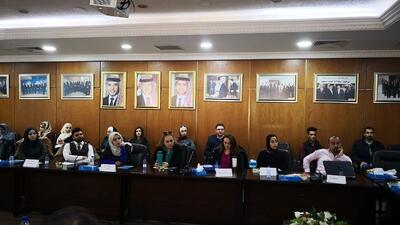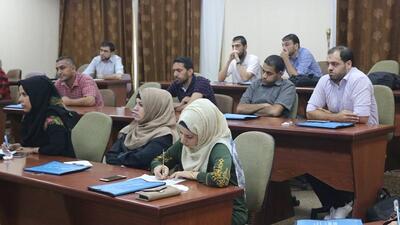
Go Digital Enables Entrepreneurs in Gaza to Bring Their Ideas to Life
The entrepreneurship track of the project gave young Palestinians the skills they need to identify and penetrate new markets, manage their start-ups and access finance, investors and grants.
This time last year, Mohammed Fawaz Al-Madhoun was trying to figure out how to make his idea to create a platform offering services to car owners a reality. Today, he and partner Abdullrahman Shaban Hassan operate a start-up specialized in selling, buying, exchanging and ordering cars, spare parts and accessories, and providing online insurance services.
Al-Madhoun attributes much of the success of his company, Kalaxat, to their participation in the International Trade Centre’s (ITC) Go Digital initiative, which trains Gazan youth to use digital channels to connect with clients, create job opportunities and access new markets. The two cofounders of Kalaxat were among the 28 young Palestinian entrepreneurs who gained the technical, vocational, financial and other skills they needed to bring their innovative ideas to life.
‘After a long search and an attempt to discover the market and choose a suitable idea, we found ourselves unable to implement it financially, in addition to our lack of the necessary experience to develop the idea according to the correct foundations that qualified us to compete,’ Al-Madhoun said. ‘Go Digital was a unique opportunity to transform our idea for an existing start-up through technical and financial services.’
Just three months after offering its first minimum viable product, Kalaxat had attracted more than 9,000 potential customers on its social media pages. Within 40 days of its first promotions of cars and showrooms, the company had earned $650. Investors also voted Kalaxat one of the three best start-ups taking part in Go Digital.
But getting there wasn’t easy. Applicants for the project first had to make it through a tough screening process to ensure they met the project criteria – such as having a tech-related entrepreneurial idea or a start-up, a diverse team to make the idea a reality and the commitment to stick with six months of training. They also took part in a ‘boot camp’ designed to encourage peer learning, create and strengthen ties among Palestinian entrepreneurs, and share ideas. During this three-day training course, participants presented their business ideas to each other and both gave and received feedback.
The project then took the entrepreneurs through idea-pitching sessions; training on topics such as financial planning, marketing and presenting business ideas to potential investors; one-on-one mentoring and coaching; and revisions of their business plans, models and budgets. During this incubation period, the entrepreneurs turned their business ideas into 10 start-up companies that can now compete in the local and regional markets.
Attracting clients and making sales
Mohammad Alkahlout, the founder of Hardware Souq, an app that allows users to display ads for used electronic tools, said applied to Go Digital to develop partnerships and a network outside the State of Palestine. He was especially keen to meet investors and other entrepreneurs and to learn more about the Gulf market, his main area of interest.
He wasn’t disappointed. By the end of the incubation stage, Alkahlout had a better grasp of his product and the market and he understood how to promote Hardware Souq and how to manage his finances. The training paid off as his client list began to grow and sales climbed.
‘With the help and support of the Go Digital project, I was able to launch my project in the Gulf and gain 1,000 users for the application, with 800 successful sales on the platform,’ Alkahlout said. ‘I am in the continuous development phase of the project according to feedback obtained from users.’
He also created temporary job opportunities for six people who are helping him develop Handware Souq.
Nader Jenainah, the founder and chief executive of H2O Commerce, signed up with Go Digital to refine his idea for an e-commerce platform that allows learners to access or search catalogues to buy online and offline courses or seminars. Like Alkahlout, Jenainah also wanted to develop a network of foreign institutions and investors so he could promote his start-up and compete in the State of Palestine and overseas.
‘The training and coaching with the supervision of ITC, especially the structure of the training and the topics, were fantastic,’ Jenainah said, adding that he also learned how to calculate costs and profits and to choose the right marketing tools and approach to reach new customers. ‘The financial support helped me to executive the idea, the programming, the marketing, designs and content writing.’
Between October and March alone, H2O Commerce made $7,500 in sales and expanded both its client base and its team, he said. The company has clinched a partnership with an e-commerce expert from the United States who helps Jenainah promote and learn more about online commercial transactions.
‘The project enabled me to improve my service in many aspects,’ Jenainah said.
Go Digital, an initiative of ITC in partnership with the Gaza-based Business and Technology Incubator, is funded by the Government of Japan




